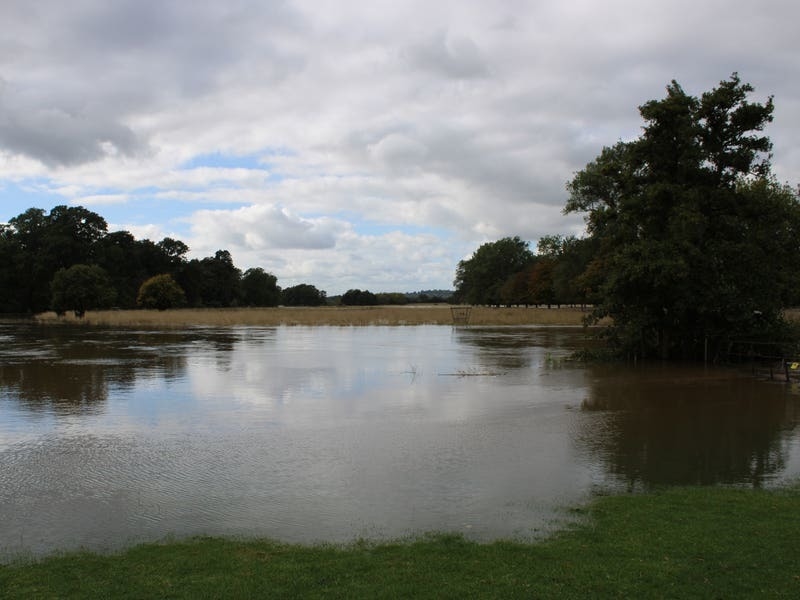
US President-elect Donald Trump re-upped his campaign promise to roll back birthright citizenship during an appearance on NBC’s “Meet the Press” on Sunday, December 8. Trump said it is “absolutely” still his plan to “end birthright citizenship on day one.” Indeed, Trump vowed a "day one Executive Order ending citizenship for children of illegals and outlawing birth tourism" in a post on his campaign website last year.
In the US, birthright citizenship is enshrined in the 14th Amendment of the US Constitution, which was passed by Congress on June 13, 1866, and ratified on July 9, 1868. As the US National Archives notes, a major provision of the 14th Amendment was to grant citizenship to “all persons born or naturalized in the United States,” thereby granting citizenship to formerly enslaved people. The Amendment begins: “All persons born or naturalized in the United States, and subject to the jurisdiction thereof, are citizens of the United States and of the State wherein they reside.

” Sign up to IrishCentral's newsletter to stay up-to-date with everything Irish! On “Meet the Press" on Sunday, Trump was asked if he could “get around the 14th Amendment with an executive action.” “Well, we’re going to have to get it changed," Trump said. "We’ll maybe have to go back to the people.
But we have to end it. We’re the only country that has it, you know." Trump's statement that the US is the "only country that has" birthright citizenship is wrong.
As per The Hill : "32 other countries - and two territories - join the US in having unrestricted birthright citizenship. And an additional 32 countries have a restricted birthright citizenship policy of some kind." Trump went on to claim: “Do you know if somebody sets a foot, just a foot, one foot, you don’t need two, on our land, ‘Congratulations you are now a citizen of the United States of America.
’ “Yes, we’re going to end that because it’s ridiculous.” Trump’s claim is false. As it stands, if you are born in the US, you are a citizen.
If you are not born in the US, immigrate to the US, and wish to become a US citizen, there is a process in place , which typically includes being a "lawful permanent resident" for at least three years. ‘Setting foot’ in the US will not grant a person US citizenship. Trump later walked back this claim, instead saying that anyone who ‘steps foot’ in the US faces “long-term litigation.
” On birthright citizenship, he concluded: "We have to get rid of this system. It’s killing our country." While the debate surrounding birthright US citizenship is bound to heat up amidst Trump's pledges, some may be surprised to learn that Ireland scrapped birthright citizenship 20 years ago .
The proposal was put forth in 2004 by Ireland's Fianna Fáil–Progressive Democrats coalition Government. It had support from Fine Gael, though the party felt there was insufficient consultation on it. The proposal faced opposition from the Labour Party, the Green Party, and Sinn Féin, as well as the SDLP in the North.
During the campaign for the referendum, voters heard of 'maternity tourism' - or, women were coming to Ireland to have babies so that they could stay in Ireland or any other EU state. In the years following the referendum, the campaigning has been criticized as having pushed misinformation and a xenophobic agenda. On June 11, 2004, the people of Ireland voted via a referendum by a staggering margin - roughly 80% to 20% - in support of amending the Irish Constitution to change the laws on citizenship and eliminate the automatic right to citizenship for anyone born in Ireland.
The Irish Nationality and Citizenship Act 2004 , which amends the Irish Nationality and Citizenship Act 1956, was enacted in December 2004. The 27th Amendment of Bunreacht na hÉireann , the Irish Constitution, states: "..
. a person born in the island of Ireland, which includes its islands and seas, who does not have, at the time of the birth of that person, at least one parent who is an Irish citizen or entitled to be an Irish citizen is not entitled to Irish citizenship or nationality, unless provided for by law." If you or your parent were born on the island of Ireland on or before December 31, 2004, you are an Irish citizen.
If you were born on the island of Ireland on or after January 1, 2005, you are entitled to Irish citizenship if one or both of your parents is Irish, is British or entitled to live in Northern Ireland or the Irish State without restriction on their residency, is a foreign national legally resident in the island of Ireland for three out of four years immediately prior to your birth. While the margin of the 2004 referendum vote was large, it appears to have since shrunk. A November 2018 Sunday Times opinion poll by Behavior & Attitudes found that 71% of respondents supported Irish birthright citizenship .
The poll came around the same time the story of nine-year-old Eric Zhi Ying Xue , who was facing deportation despite being born in Ireland, gripped the headlines. (Xue was ultimately granted humanitarian leave by the then-Minister for Justice after his classmates organized a campaign to enable Eric and his family to stay in Ireland.) The same week the poll was reported, Irish Senator Ivana Bacik introduced the Irish Nationality and Citizenship (Naturalisation of Minors Born in Ireland) Bill 2018 .
While the Bill did not seek to reverse the referendum, it did seek to provide a pathway to citizenship for children born in Ireland. Portions of the Bill that called for changes to the naturalisation process were ultimately included in the Courts and Civil Law (Miscellaneous Provisions) Bill 2022 ..










